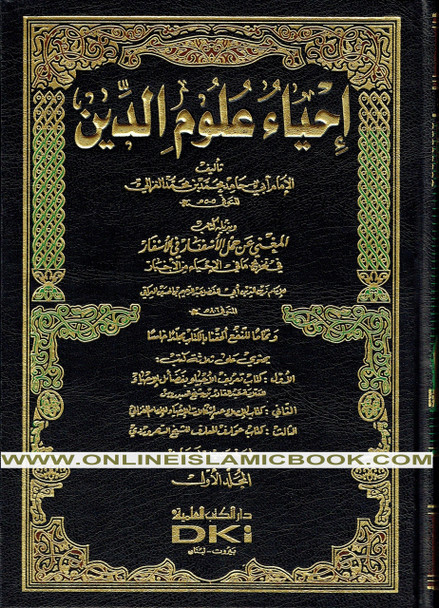About This Book:
Imam Al Ghazali's "Ihya Ulum Ad-din" is a timeless and transforming masterpiece that serves as a beacon of Islamic spirituality and instruction. This massive book, offered in a five-volume series, shows the author's thorough investigation of Islamic ethics, spirituality, and the road to a meaningful and rewarding religious life. Imam Al Ghazali's ideas continue to inspire and affect the spiritual experiences of millions of people worldwide.
Key Characteristics include:
Five-Volume Set:
This enormous collection is divided into five volumes, each of which is dedicated to a different component of religious sciences, giving a thorough reference to Islamic spirituality and ethics.
Imam Al Ghazali:
Imam Al Ghazali, one of the most renowned Islamic academics in history, contributes to this book his extensive understanding of Islamic jurisprudence, theology, and mysticism. His spiritual insights and wisdom have left an everlasting imprint on Islamic philosophy.
Spiritual Vitalization:
"Ihya Ulum Ad-din" serves as a guide to rejuvenating one's spiritual dimension of life, providing a path for personal development, moral progress, and a stronger relationship with Allah (God).
Ethical and Moral Discourse:
The work digs into the ethical and moral components of human life, giving important insights into character formation, ethical behavior, and the quest of virtuous living.
Practical Guidance:
Imam Al Ghazali provides practical instruction on daily rituals, devotion, and prayer, as well as how to live a life in line with Islamic norms. His teachings are profoundly founded in Islamic jurisprudence traditions.
Sufi Influence:
Sufi teachings and practices are included into the work, emphasizing the necessity of inner cleansing and the journey of the soul toward spiritual enlightenment.
Timeless Relevance:
Despite being penned centuries ago, the lessons of "Ihya Ulum Ad-din" are immensely relevant in today's world, providing a plan for living a balanced and spiritually fulfilled life.











